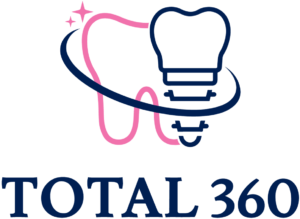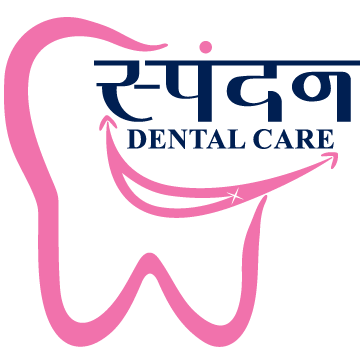What is Preventative Dentistry?
Preventative dentistry revolves around preserving your dental health through regular oral hygiene habits over the course of your life. At Total 360 Dental Care Clinic, our preventative dentistry approach aims to instruct individuals on maintaining their teeth and gums in peak condition. This helps avert oral problems like gum disease, cavities, and enamel wear and tear.
What is a Paediatric Dentist?
Paediatric dentists offer a wide range of oral health services, which comprise the following:
- Conducting oral health examinations for infants, which also involve assessing both mother and child’s risk for tooth decay.
- Offering guidance on habits like thumb sucking and pacifier use.
- Performing early assessments and treatments to align teeth and rectify improper bites (orthodontics).
- Repairing tooth cavities or other defects.
- Handling gum diseases and conditions like ulcers, short frenulae, mucoceles, and pediatric periodontal disease.
- Treating dental injuries like fractured, displaced, or knocked-out teeth.
a) Oral Hygiene Guidelines:
- Brushing
- Flossing
- Mouthwash
- Nutrition
- Routine Dental Visits
- Orthodontic Treatment
- No Smoking and Tobacco
- Teeth Protection
- Toothbrush Maintenance
- Hydration
b)What Connects Dental and Heart Health?
The connection between heart health and oral health has been a subject of study in the medical field for a while now. This is often referred to as the “heart-mouth connection”. Here’s a breakdown:
Oral health, particularly gum health, has been linked to heart disease. Periodontitis, or severe gum disease, can increase inflammation throughout the body. Inflammation plays a crucial role in the development of atherosclerosis (hardening of the arteries) and can lead to cardiovascular disease.
What oral health problems are associated with diabetes?
People with diabetes are at a higher risk for several oral health problems due to the body’s decreased ability to fight off infections and control blood sugar. High glucose levels in saliva may help harmful bacteria thrive, leading to various dental issues. Here are some oral health problems often associated with diabetes:
- Gum Disease (Periodontal Disease)
- Dry Mouth (Xerostomia)
- Thrush (Candidiasis)
- Burning Mouth Syndrome
- Oral Wound Healing Problems
- Tooth Decay (Cavities)
Regular dental check-ups, good oral hygiene practices, and well-managed blood sugar levels can help prevent these problems.
What is the link between hormones and women's oral health?
Patients choose a treatment when their teeth irritate them and affect their daily life. Unusual or crooked smiles might lower self-confidence and quality of life. Visit Total 360 Dental Care Clinic when you have:
- Puberty: During puberty, increased levels of estrogen and progesterone can cause the gums to become more sensitive and reactive to plaque, leading to swelling, bleeding, and redness.
- Menstrual Cycle: Some women may experience oral changes like swollen gums and canker sores due to hormonal fluctuations (particularly the increase of progesterone) during their monthly menstrual cycle.
- Pregnancy: Hormonal changes during pregnancy can lead to “pregnancy gingivitis,” where gums become inflamed and bleed easily. Regular dental check-ups during pregnancy are vital.
- Menopause: During menopause, decreased levels of estrogen can lead to dry mouth and bone loss, increasing the risk of tooth decay and gum disease. Some women may also experience a burning sensation in their mouth.
- Use of Birth Control: Women taking oral contraceptives, commonly known as birth control pills, should inform their dentist about their medication. It’s vital to uphold good oral health while on these pills. The hormone levels in women using birth control pills, particularly those with progesterone, can elevate blood circulation to the gums. This amplifies a woman’s likelihood of contracting gum disease. Therefore, a dentist might recommend antibiotics as a treatment measure for gum disease.
- Eating Disorders and Dental Health: Eating disorders are significantly more prevalent in teenage girls than boys, with this trend continuing across various age groups. These disorders pose a serious threat to life, impacting every system within the body, including oral health.
Smoking and Gum Health
Smoking negatively affects gum health in several ways. It reduces blood flow to the gums, making them less able to fight off infections and heal from damage. This increases the risk of periodontal (gum) disease, a major cause of tooth loss in adults. Regular dental check-ups can help identify early signs of gum disease and provide appropriate treatment.
Tobacco, Teeth, and Gums
Chewing tobacco also presents considerable threats to oral health. It can result in the discoloration of teeth, amplified accumulation of plaque and tartar, and an escalated risk of cavities and gum disease. Moreover, both the practices of smoking and chewing tobacco markedly elevate the risk of oral cancer.
Preventive dentistry can play a part in mitigating these risks. Regular cleanings can help manage plaque and tartar build up and monitor any changes in the mouth that may indicate disease or cancer.

